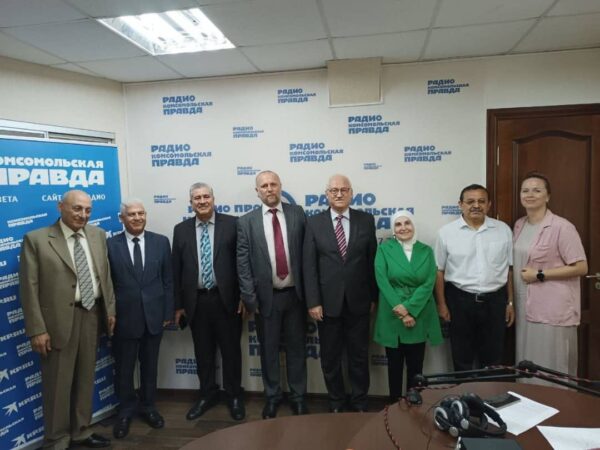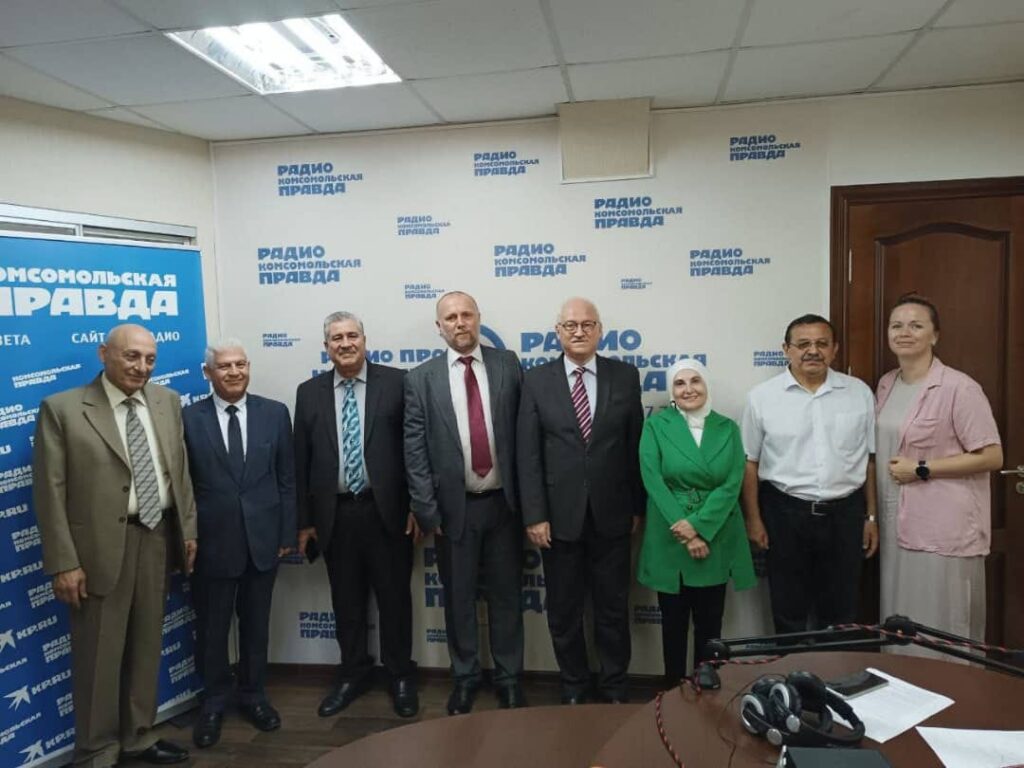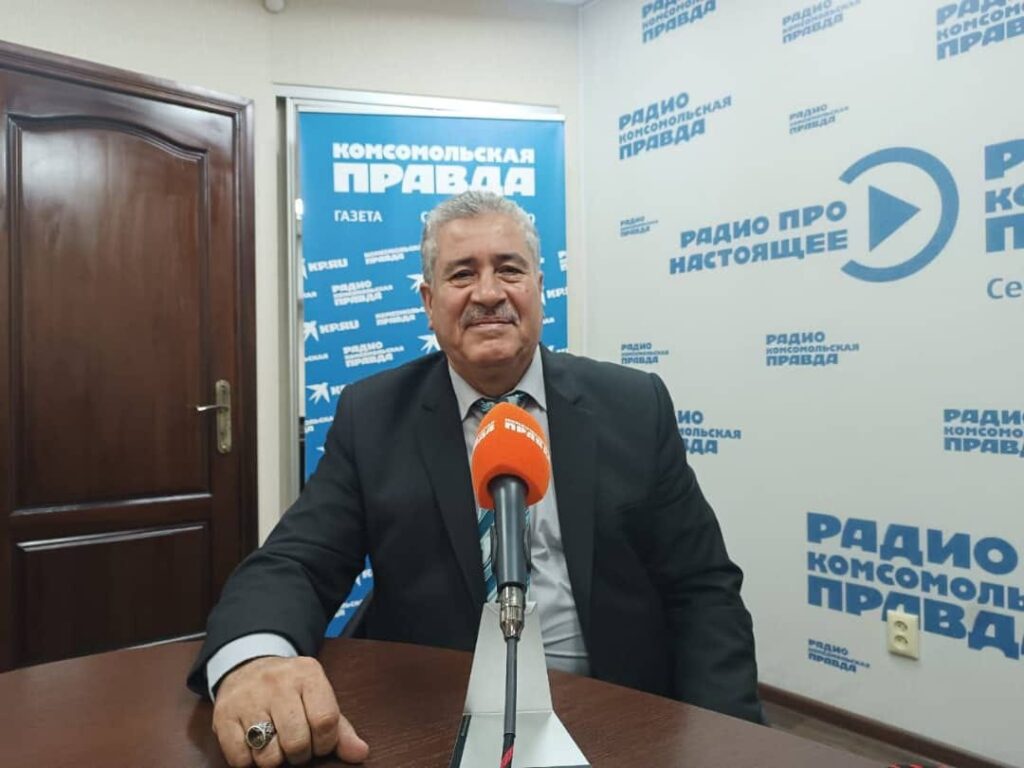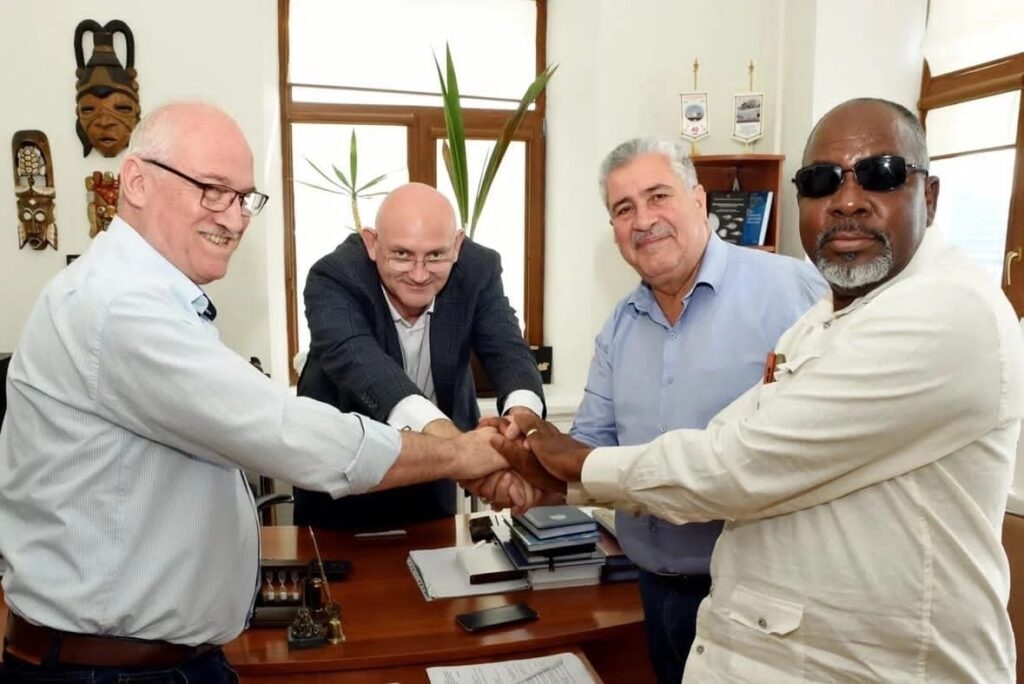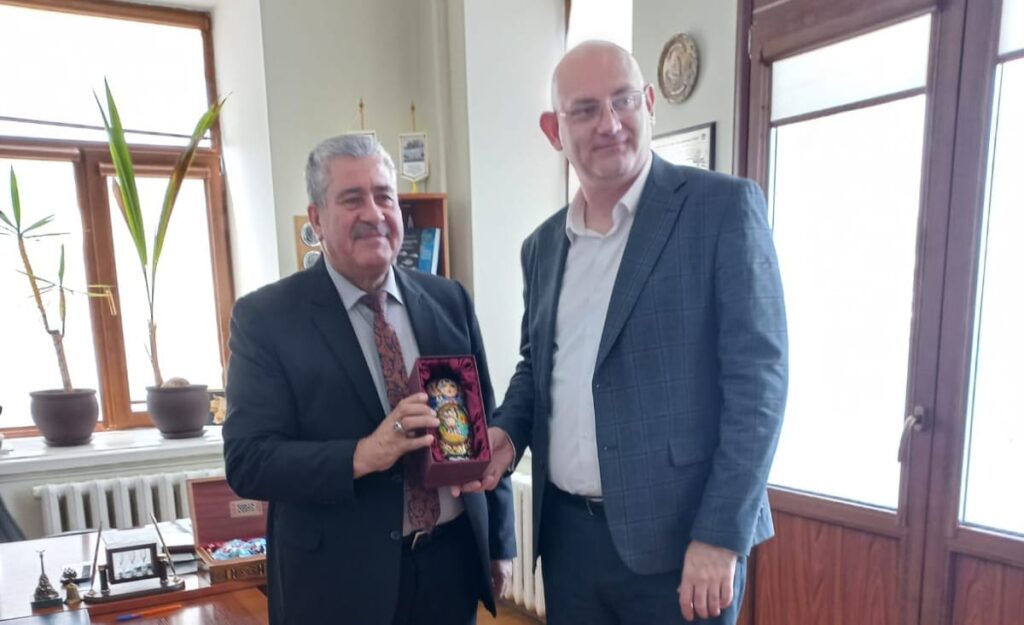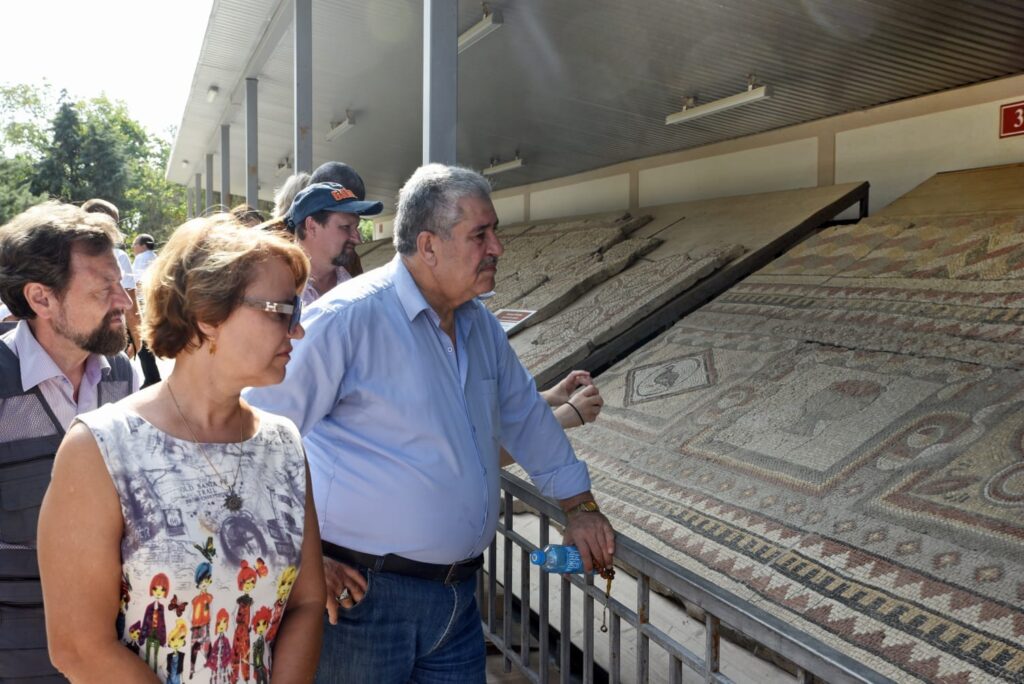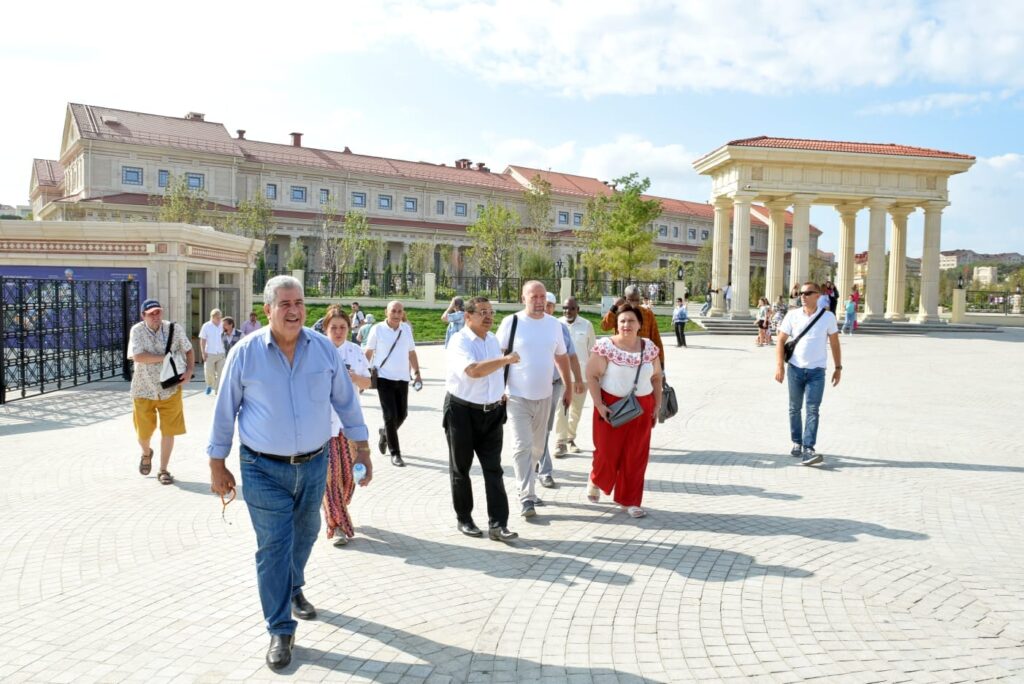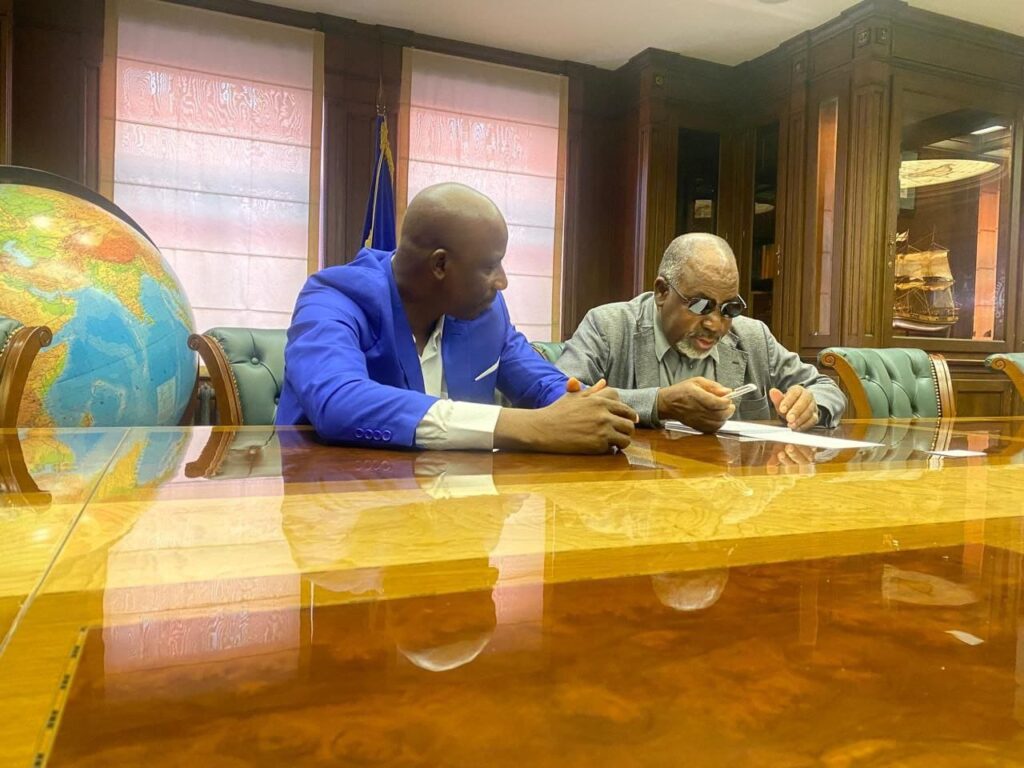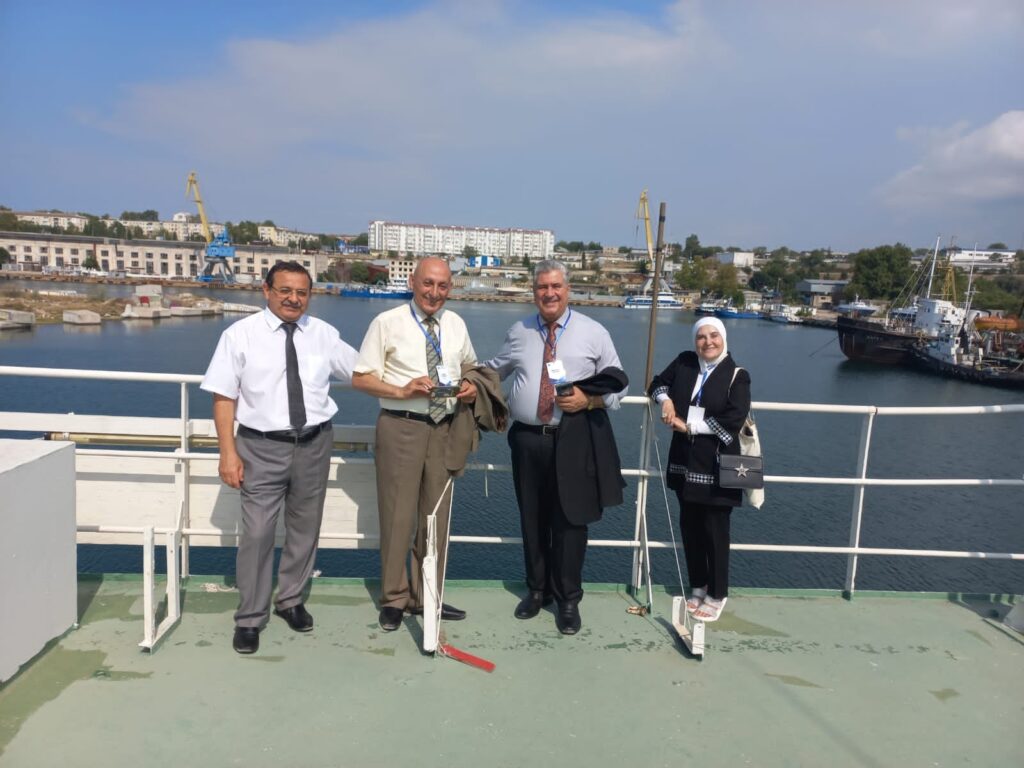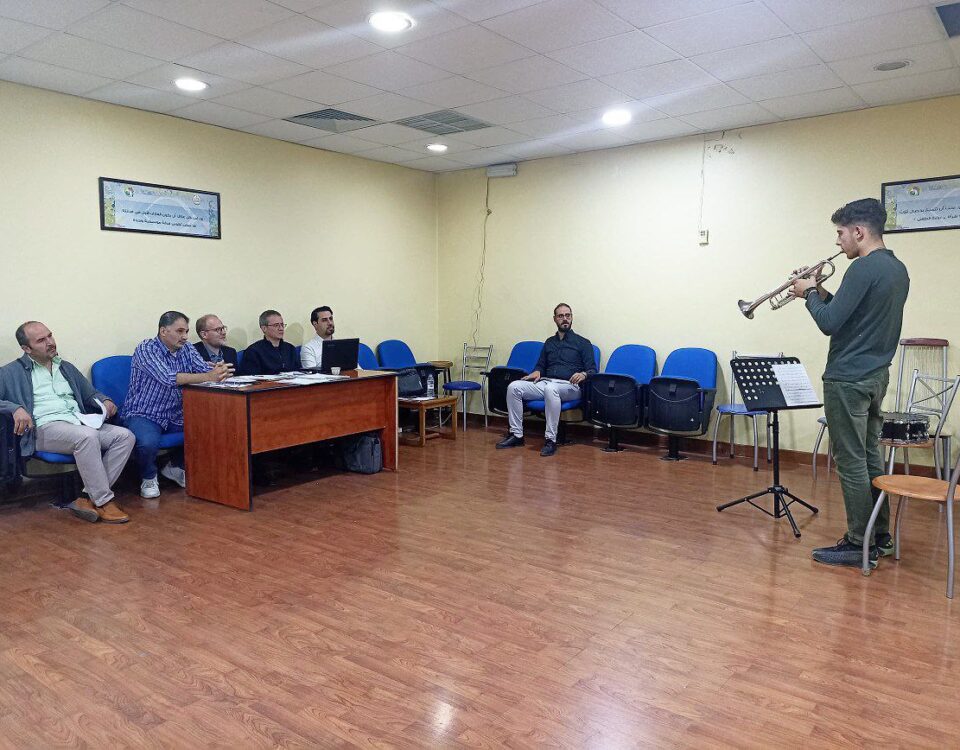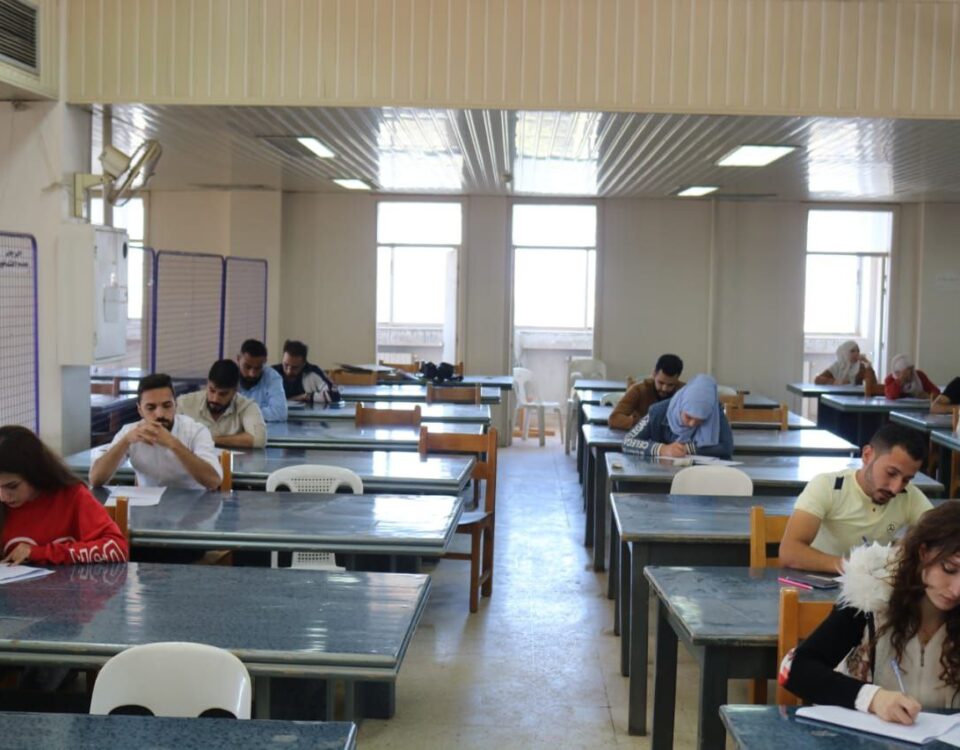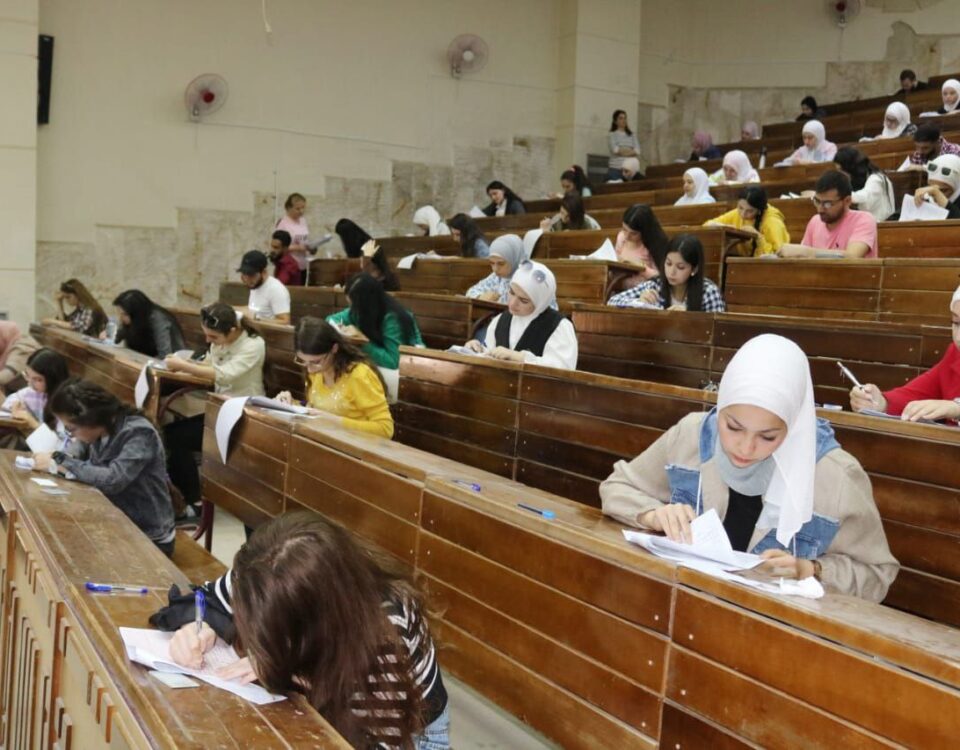Al-Baath University has participated in the third international scientific and practical conference “Studying the aquatic and terrestrial ecosystems: history and modernity” organized by A.O. KOVALEVSKY Institute of Biology of The Southern Seas of RAS in Russia during the period from 2-7 September 2024. Al-Baath University delegation included the university president, Prof. Abdul Basit Al Khatib, the university vice-president for scientific affairs, Prof. Maan Salameh, and the university vice-president for higher studies and scientific research affairs, Prof. Mahmoud Hadid.
Prof. Abdul Basit Al-Khatib has pointed out that the university participation in this conference comes within the framework of the scientific cooperation agreement signed between Al-Baath University and the institute in 2023. He has also indicated that the agreement boosts the mutual scientific benefit in the field of environmental, water and marine diversity, enhances environmental education to confront environmental challenges, and supports sustainable management of natural resources, which has great economic, nutritional and medical importance. Moreover, he has referred to the decades-long scientific and cultural relation between Syria and Russia, noting its continuous development in line with the modern conditions and technologies that enrich the university by delegating teaching assistants and postgraduate students and increasing the number of scholarships to include all medical, engineering and environmental specializations.
Al-Baath University has sent 77 teaching assistants to the Russian universities and signed 12 scientific agreements with them, hoping to increase the exchange of visits by professors, provide educational materials and joint study programs and supervision of postgraduate students, and hold conferences that contribute to the development of the educational process and scientific research.
Prof. Maan Salameh has stated that the conference included the participation of researchers, professors, postgraduate students, students of research institutes and higher education institutions from several Arab and foreign countries, in addition to representatives of public organizations interested in developing scientific research. He has also indicated that the conference objectives have been to present the results of basic and applied scientific research in the field of studying aquatic and terrestrial ecosystems abroad and in Russia , to discuss the prospects for the rational use and protection of biological resources, and to improve the professional qualifications of young specialists working in scientific and educational institutions.
Prof. Mahmoud Hadid has explained that the conference topics included the biodiversity of aquatic and terrestrial ecosystems and their conservation, the structure, functioning and dynamics of aquatic and terrestrial ecosystems, environmental microbiology , physiology and biochemistry of adaptation processes of aquatic organisms, molecular biology and genetics of aquatic organisms, problems of pollution of aquatic ecosystems and marine radioactivity, biological resources, biotechnology and aquaculture, sustainable coastal development, low-carbon development and adaptation to climate change, methane gas discharge in aquatic ecosystems: flows, environmental role, origin, and participation in geological and environmental processes.
Al-Baath University participated in the conference through a working paper for a research project within the second axis of the round table sessions, which was entitled environmental safety in post-conflict areas. Prof. Maan Salameh spoke about the environmental repercussions of the war on Syria in the water and sanitation sector, soil degradation, decline in vegetation, deterioration of biodiversity in some Syrian regions, and the proposed measures for the post-war phase. Prof. Hadid explained the repercussions of terrorism in the field of oil pollution and its negative effects on environmental degradation in some regions of Syria.
On the sidelines of the conference, the university delegation visited the laboratories of the Sevastopol State University and closely examined the most important scientific interests in the fields of decision support systems in the study of water systems, climate change and ecological genetics. It was agreed to hold a scientific meeting between the deputy presidents and some researchers from both universities via virtual communication in preparation for concluding a joint scientific cooperation agreement within the framework of common scientific interests. The delegation also visited the water museum, one of the research vessels
and many building of the institute.

